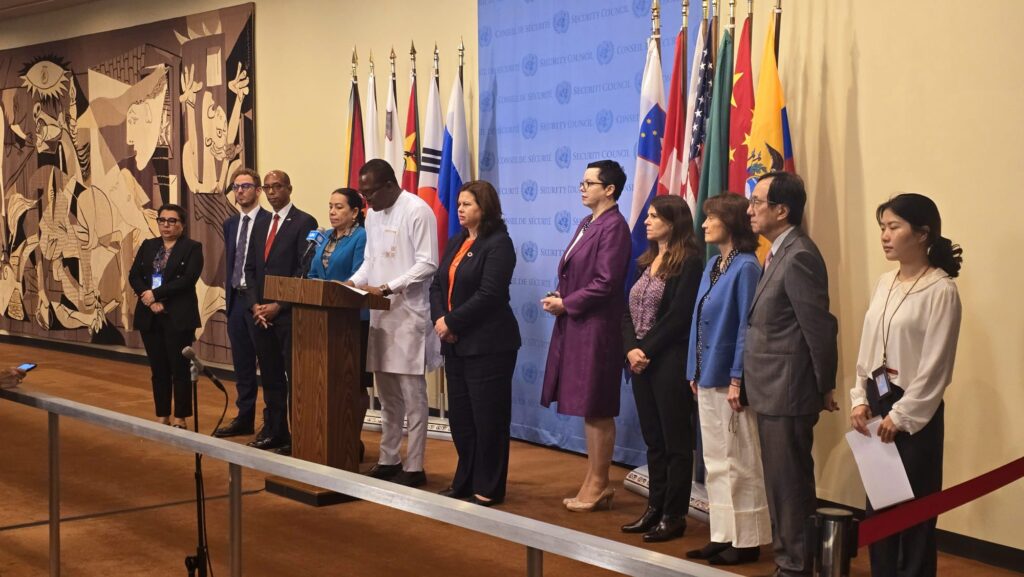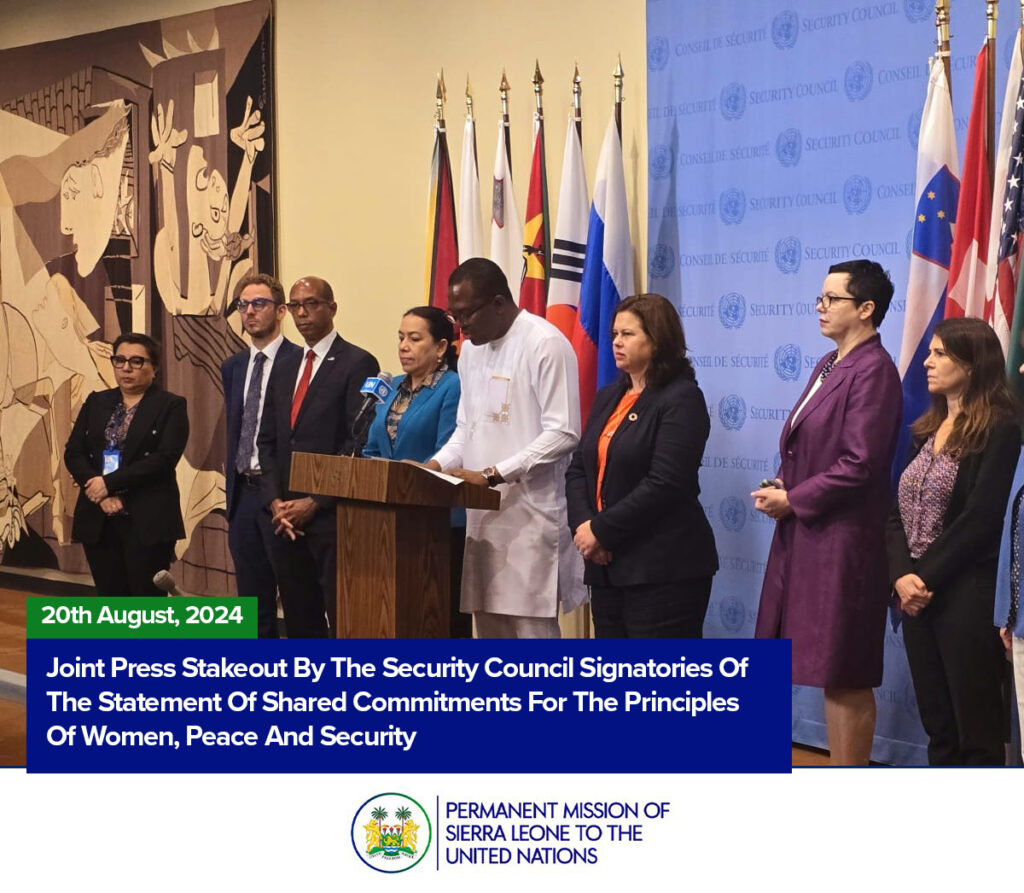SECURITY COUNCIL MEETING ON LIBYA
We, the Security Council signatories of the Statement of Shared Commitments for the principles of Women, Peace, and Security (WPS), Ecuador, France, Guyana, Japan, Malta, the Republic of Korea, Sierra Leone, Slovenia, Switzerland, the United Kingdom and the United States of America, take this opportunity to reaffirm our support to the protection and empowerment of Libyan women and girls.
We express our grave concern about the lack of Libyan women’s full, equal and meaningful participation in shaping the future of their country. There have been no women in the 5+5 Libyan
Joint Military Commission on Security Arrangements or the 6+6 Libyan Joint Committee for Preparing Electoral Laws and women representation has been low in national dialogues, parliament, and government.
While the country`s national elections were postponed sine die, provisions for a 30 per cent quota for women as agreed by the Libyan political dialogue forum roadmap, or 25 per cent as set in the draft Libyan Constitution, risk being ignored, as the latest approved electoral law only allocates six seats to women out of the 90 seats composing the future Libyan senate.
We request the UN to continue reporting on women’s representation in every relevant committee and institution and to remind all parties that the Security Council has urged Libyan institutions and authorities to ensure the full, equal, effective, meaningful, and safe participation of women at all levels, including in leadership positions, and all stages of decision-making relating to inclusive political processes, democratic transition, reconciliation efforts, conflict resolution, and peacebuilding.
We also condemn the reprisals against Libyan women participating in public and political life, call on the Libyan authorities to hold perpetrators accountable, and urge UNSMIL, within its mandate, to strengthen coordination of its response to reprisals. We reiterate Libya`s international commitments on women`s rights and empowerment, representing universal values that contribute to sustainable development and peace.
Additionally, we raise our alarm about the shrinking civic space, including civil society organizations, advancing women`s rights and gender equality with stricter requirements for registration, gender- based violence and reports of harassment and targeting of women human rights defenders. We are also concerned about the online harassment and violence against women, which can translate into physical violence and can impact women`s ability to participate in
Libyan politics, civic life and media.
We recall that the Security Council has urged the authorities to recognize the need to protect migrant women, women’s rights organizations and women peacebuilders from threats, reprisals, and attacks, and strongly encouraged all parties to create a safe and enabling environment for members of civil society.
We have received with concern the UN’s reports about attempts to frame universally accepted terms like gender as a threat to “Libyan society and values”, thus endangering the work of all actors working on gender equality and women’s protection, participation and rights. We are also concerned about the disproportionate impact of the anti-cybercrime law on women human rights defenders.
We remain equally concerned about human rights violations and abuses against women and girls, including migrant women both in detention centres and facilities and in situations of displacement or trafficking, as reported for many years by human rights investigations and the panel of experts supporting the Security Council’s Libya sanctions committee. Most survivors of sexual and gender-based violence, including those who become pregnant, have limited access to justice and essential health services.
The legislative framework remains discriminatory, and a draft law on the protection of women and girls against all forms of violence, including sexual and gender-based violence, has not yet been adopted.
Finally, we urge Libyan authorities to expedite the adoption of legislation to address trafficking and violence against women and girls, fight against the impunity of the perpetrators, and hold them accountable.




